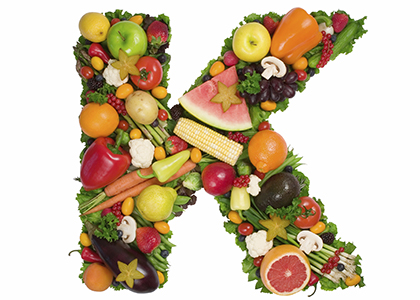
What You Need to Know about Vitamin K
By Isabel Smith, MS, RD, CDN
‘Get your vitamins and minerals!’ We’ve all probably heard that a time or two, and it’s true. We do need them. Every vitamin and mineral has a different purpose and plays an important role in our body. Because each vitamin is so crucial to health and wellness it’s great to highlight them individually (like we’ve done for vitamin D), but today let’s talk Vitamin K.
What does Vitamin K do?
Vitamin K is a fat-soluble vitamin (so it should be consumed with fat like olive oil or avocado for optimal absorption) and plays a key role in healthy blood clotting in the body, bone health, and helps to prevent heart disease.
The two types: K1 and K2:
Vitamin K1 is found in food, where K2 can actually be made in the body (see more details below), but altogether are all referred to as vitamin K.
K1: K1 is also known as phylloquinone and comes from dark green leafy vegetables; this version of vitamin K goes directly to the liver to help promote healthy blood clotting.
K2: K2 is also known as menaquinone and is made by the bacteria in our guts and also may be found in fermented foods; this version of vitamin K is used to promote healthy bones and blood vessels. For example, some research has found that on the whole, those with a higher vitamin K status have stronger bones and that those with osteoporosis typically also have a lower level of vitamin K.
The unique thing about vitamin K is that a version of it can be synthesized by our bodies (well, actually the bacteria that lives in our gut) and this is rare thing, besides in the case of vitamin D.
Where do you get vitamin K?
Vitamin K is found in a lot of green vegetables (typically the darker the green, the more Vitamin K) like kale, spinach, collards, turnip greens, mustard greens, beet greens, broccoli and Brussels sprouts.
Although they’re not green, there are also other foods that are also sources of vitamin K, like onions, miso, dried plums, blueberries and pumpkin, but they contain much less than the dark green leafy vegetables.
Don’t forget too that healthy gut bacteria is also the source of some of our vitamin K in our bodies, so that’s an important source too for both vitamin K and a lot of other and important things that happen in our bodies too.
What if you’re taking a blood thinner, what should you know?
One of the most common questions that I get from clients and Rebooters regarding vitamin K is about drug/nutrient interactions between vitamin K and anti-clotting medications. When it comes to food consumption (really very few people would need a vitamin K supplement), the short answer to this question is that the interaction between the drug and the vitamin totally depends on the blood thinner that one is taking. Some blood thinners require a low or consistent intake of vitamin K-rich foods, whereas some of the newer age blood thinners may not require any change or monitoring of diet. It all depends on the type of blood thinner, therefore, it’s key to defer to a Registered Dietitian to help make a plan for a client who is on a blood thinner to answer the question of whether this should be a concern.